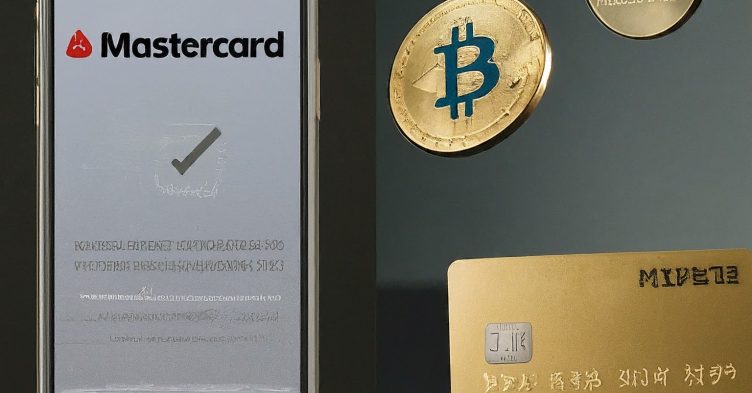Mastercard, the global payments giant, has officially dipped its toes into the cryptocurrency world with the launch of its “Crypto Credential.” This innovative service aims to simplify and secure cryptocurrency transactions by leveraging existing Mastercard infrastructure.
Replacing Complex Blockchain Addresses:
Traditionally, sending and receiving cryptocurrency involves using long and complex blockchain addresses, posing a significant barrier for mainstream adoption. Mastercard’s Crypto Credential offers a more user-friendly alternative.
Here’s how it works: users can link their existing crypto wallets to the Mastercard network. Instead of sharing intricate blockchain addresses, they can utilize simpler identifiers like their phone number or email address for seamless crypto transactions.
Security and Transparency:
Mastercard emphasizes the security aspects of the Crypto Credential. It leverages existing Mastercard security protocols to safeguard user information and transactions. Additionally, the platform provides real-time transaction tracking and spending insights, fostering transparency and control for users.
Limited Launch and Future Potential:
This initial launch of the Crypto Credential is limited to a pilot program with select partners. However, Mastercard’s foray into the crypto space indicates a growing recognition of the technology’s potential. The success of this pilot program could pave the way for a wider rollout, potentially making crypto transactions more accessible to a broader audience.
Industry Reactions and Competition:
The cryptocurrency community has responded with a mix of curiosity and cautious optimism. Some hail it as a positive development for mainstream adoption, while others express concerns about potential centralization within the crypto ecosystem.
This move by Mastercard is sure to spark competition within the payments industry. Visa, another major player, has also been exploring ways to integrate cryptocurrency into its services. With established financial institutions entering the crypto space, the future of digital assets appears to be increasingly intertwined with traditional financial systems.





